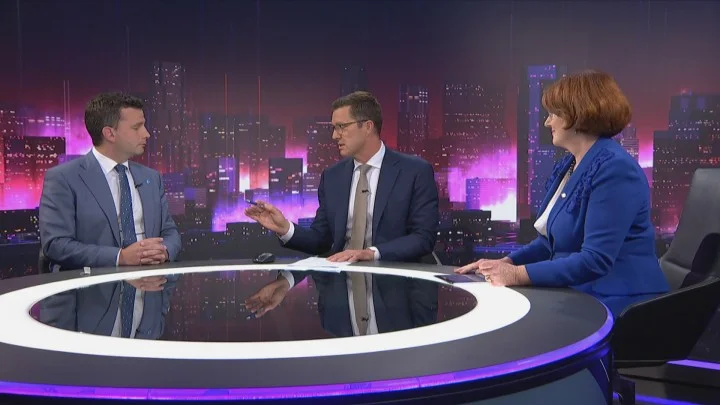National MP Maggie Barry has slammed David Seymour's euthanasia proposal, saying "your Bill seeks to kill people" during a debate on TVNZ's Q+A. Ms Barry and ACT leader Mr Seymour went head to head on Q+A last night, as proposed legislation that would allow for assisted dying prepares for a return to parliament.
The number of public submissions to the justice select committee on Mr Seymour's End of Life Bill reached almost 38,000, with most against.
A recent study by Otago University found New Zealand attitudes had reached an average of 68.3 per cent in support of legalising euthanasia, 14.9 per cent opposed and 15.7 per cent were either neutral on the topic or unsure.
#DefendNZ Comment: There is a vast difference between support for an abstract concept and support for a particular Bill with all its practical difficulties. It is no surprise that more than 35,000 doctors, lawyers, mental health workers and other New Zealanders cared enough to write submissions against the End of Life Choice Bill. It is deeply flawed and unworkable.
David Seymour is not only dismissive of Parliament’s submission process in general. He is also discrediting the Care Alliance’s quantitative and qualitative report on their analysis of 38,707 submissions while promoting a report which was written based on having read a mere 226 of them.
The cited review of 20 years’ research on New Zealanders’ attitudes to ‘assisted dying’ analysed polling only up to August 2017. A subsequent Curia Market Research Poll of 894 respondents in November 2017 found that New Zealanders confuse ‘assisted dying’ with end-of-life practices that are legal and available. This ground-breaking poll challenges the validity of most other polls on the issue. It shows that support for euphemisms such as ‘assisted dying’, ‘aid in dying’ or ‘assistance to end their life’ should not be taken as support for a law change or as support for any particular Bill.
Ms Barry, who opposes the bill, said she objects to the "length and breath", saying there were not enough protections for the vulnerable.
"This is not a bill that is going to affect a very small amount of people who are at the end of their lives. By the definition of grievous and irremediable, it opens up a whole new arena of people.
"This is a seismic change in the way our laws and our medical practice works. It effects the vast majority of people who actually want to live.
"It's too high a price to pay and this bill is not fit for purpose."
Mr Seymour said "the evidence from around the world is that these bills work and the ultimate proof of that is that no country that has had an assisted dying law, in many cases up to 20 years, has gone back".
Mr Seymour said suicide was a reality "for far too many New Zealanders who have a terminal illness".
He invited Ms Barry to include her Palliative Care Bill in his End of Life Choice Bill, saying "you have to accept that palliative care doesn’t help everybody and some people want a different choice".
Ms Barry rebuffed the offer, calling the End of Life Choice Bill "diametrically opposed to what palliative care is all about".
"Palliative care seeks to care for people; your bill seeks to kill people.
“There are no safeguards for the vulnerable."
Mr Seymour said the bill sets down a person must have an irremediable medical condition or a terminal medical condition and must be in an advanced state of irreversible decline and capability.
He said conditions such as depression would not meet the criteria.
Last year, Mr Seymour attempted to suggest adjustments to the bill, including limiting access to only the terminally ill rather than including people with grievous and incurable medical conditions, specifically stating people with mental health conditions do not qualify and holding a binding referendum on the bill.

